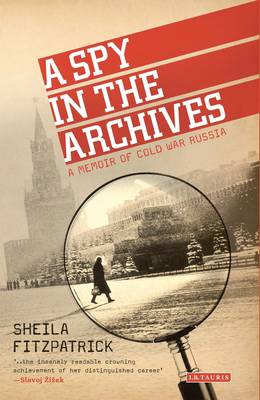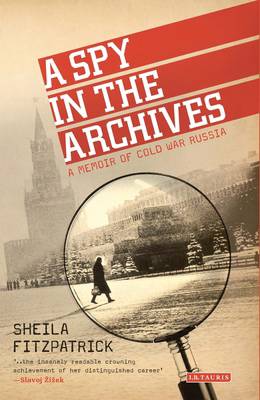
- Afhalen na 1 uur in een winkel met voorraad
- Gratis thuislevering in België vanaf € 30
- Ruim aanbod met 7 miljoen producten
- Afhalen na 1 uur in een winkel met voorraad
- Gratis thuislevering in België vanaf € 30
- Ruim aanbod met 7 miljoen producten
Zoeken
€ 56,45
+ 112 punten
Uitvoering
Omschrijving
Moscow in the 1960s was the other side of the Iron Curtain: mysterious, exotic, even dangerous. In 1966 the historian Sheila Fitzpatrick traveled to Moscow to research in the Soviet archives. This was the era of Brezhnev, of a possible 'thaw' in the Cold War, when the Soviets couldn't decide either to thaw out properly or re-freeze. Moscow, the world capital of socialism, was renowned for its drabness. The buses were overcrowded; there were endemic shortages and endless queues. This was also the age of regular spying scandals and tit-for-tat diplomatic expulsions and it was no surprise that visiting students were subject to intense scrutiny by the KGB. Many of Fitzpatrick's friends were involved in espionage activities - and indeed others were accused of being spies or kept under close surveillance. In this book, Sheila Fitzpatrick provides a unique insight into everyday life in Soviet Moscow. Full of drama and colorful characters, her remarkable memoir highlights the dangers and drudgery faced by Westerners living under communism.
Specificaties
Betrokkenen
- Auteur(s):
- Uitgeverij:
Inhoud
- Aantal bladzijden:
- 352
- Taal:
- Engels
Eigenschappen
- Productcode (EAN):
- 9781780767802
- Verschijningsdatum:
- 5/12/2013
- Uitvoering:
- Hardcover
- Formaat:
- Genaaid
- Afmetingen:
- 140 mm x 216 mm
- Gewicht:
- 544 g

Alleen bij Standaard Boekhandel
+ 112 punten op je klantenkaart van Standaard Boekhandel
Beoordelingen
We publiceren alleen reviews die voldoen aan de voorwaarden voor reviews. Bekijk onze voorwaarden voor reviews.











